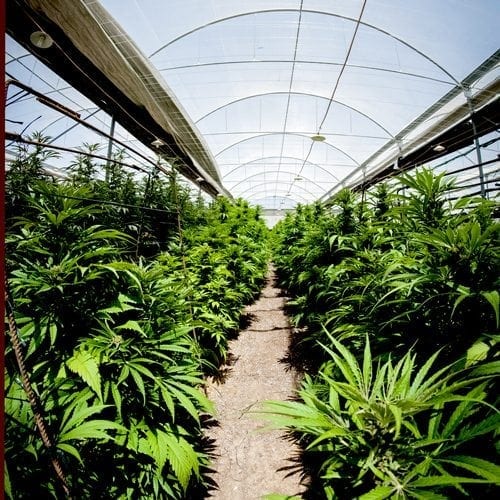
The US Cannabis Industry is in a weird position at the moment.
With Sessions and Trump fighting over the War on Drugs and parts of the country still moving forward with plans of legalization, Cannabis is a big topic right now.
Cannabis prohibition began 80 years ago when the federal government put a ban on the sale, cultivation, and use of the cannabis plant. It remains illegal on the federal level. Though the journey of acceptance is still a slow race, the idea of Cannabis is slowly being changed in America.
At the moment, more than half of the country allows at least Medical Marijuana and more have plans to go “green” in the near future. With so much positive movement, Federal legalization seems like the next step.
Are we as a country really ready for that, however?
We have a few things in the way but, the road looks clearer everyday.
Despite more people joining the advocacy side of things, there are things working against Cannabis. Attorney General, Jeff Sessions is the biggest one.
Since he took his seat, Sessions has made multiple attempts to unravel the industry. In May of 2017, he urged Congressional leaders to not renew the Rohrabacher–Farr Amendment. The amendment prohibited federal funds being used to interfere with legal MMJ states. Nothing came of the letter but, the stance of the new AG was now known.
President Trump has tried to support states’ individual rights but he has a had a track record of making weak promises. As well, the DOJ declined comments on Trump’s new support in light of Sessions’ rescinding of the Obama Era Cole memos. The memo restricted the federal government from interfering with states choice to legalize Cannabis or not.
“Commitments mean little from President Trump. The only way to truly protect states that have legalized marijuana is for Congress to act.”
–New Jersey Democratic Senator, Cory Booker
To truly protect Cannabis, more has to be done.
Lawmakers are split almost down the middle but, a 2017 Gallop poll shows a growing 64% of Americans approving of legalizing. As well, a number of Politicians previously opposing Cannabis are now changing their stances. John Boehner being one of the most surprising, as someone who was in adamant opposition of Cannabis.
The previous Republican Speaker of the House joined efforts to reschedule Cannabis with Acreage Holdings, a company owning cultivations, processing centers, and dispensaries in 11 states.
The change of heart would be better if he were still Speaker of the House but, having someone making such a drastic change looks good for Cannabis.
Boehner isn’t the only one though.
Republican Senate Majority Leader, Mitch McConnell, has introduced a bill to legalize hemp as an agricultural product. If passed, the bill would remove Industrial Hemp from Schedule I of the Controlled Substances Act and federally legalize commercial cultivation of the crop.
From anyone not aware, many medicinal products using CBD are derived from Hemp. Hemp has a very low THC count ( typically .03%) while Cannabis has a much higher one. This makes Cannabis a go-to for those looking for strictly medicinal properties of the plant. As well, Hemp can be used as an alternative to a variety of things such as cotton, biofuel, construction materials, etc.
This would be huge first step, especially Medical Cannabis. The Hemp Farming Act will open the federal door for Cannabis by allowing Hemp to be freely used.
The questioned posed however, if Hemp is ok, why not Cannabis?
There is still a lot of skepticism about our favorite plant.
Many Americans, mostly older, believe in legalization but are skeptical of the Medical benefits despite the growing popularity of Hemp and CBD. Four out of five Americans aged 50 to 80 support legalization but only 14% of that believe Cannabis is more effect that opioids in treating chronic pain.
They advocate for it but, want more research on the potential of Medical Marijuana.
Unfortunately, Marijuana is still federally illegal making that impossible
The more time Cannabis spends in the limelight, the more the conversation opens up about the legal possibilities with it. The biggest appeal state lawmakers are drawn too are the tax revenue legal states have reaped.
Recreational Cannabis, meaning available without Doctor Recommendation, is an option in 9 states, and Medical Cannabis is legal in 29 states.
Out of those that are legal, different roadblock arise once the leap is taken. Distribution problems, licensing, and shortages plague many markets once opening because of the Federal legalities. The issues typically are things that smooth over as the industry grows but the looming idea of federal charges is always in the back of business minds.
Handling the mostly cash business is one of the biggest pitfalls. Since banks are federally protected, most choose not to work with Cannabis businesses or charge large fees to assist them because of the possible implications.
Speaking on numbers, legal marijuana sales were expected to hit $9.7 billion in North America in 2017, according to a report from Arcview Market Research. The report shows a 33% increase over 2016. Despite the federal prohibition, the industry is constantly growing.
The report also predicted that the entire legal marijuana market will reach $24.5 billion in sales — a 28% annual growth rate — by 2021.
In tax revenue alone, Nevada made $30 million their first 6 months in their recreational status.
Non-recreational legal states have taken notice and started to move in the same direction.
Many are citing that the money is not their reasoning for changing their stance on Cannabis. Either way, Cannabis is sweeping over the country. It seems all up to the states at this point to pursue their individual rights to legalize.
Ironically enough, 2018 has seen more states with no citizen referendum approving Cannabis laws. All previously legal states had citizens vote on a ballot as they had the option to petition for the vote.
Vermont was the first state of 2018 to go legal through Governor approval and not through a citizen vote. This sets a precedent for other states without Citizen Referendums. New Jersey is such a state also on the road to legalization.
The DOJ seems to have no interest in stopping their efforts against Cannabis but Cannabis shows no signs of slowly down either. The constant efforts have caused more talks of federalization to ease their issues
We have more lawmakers and politicians joining the fight to reschedule and legalize Cannabis. With the flourishing economic growth in MMJ legal states, it’s hard to deny it’s benefits.
A world with federally legal Cannabis might not happen this decade but it is indeed on it’s way.
Source: Joycelin A. – Contributing Writer





